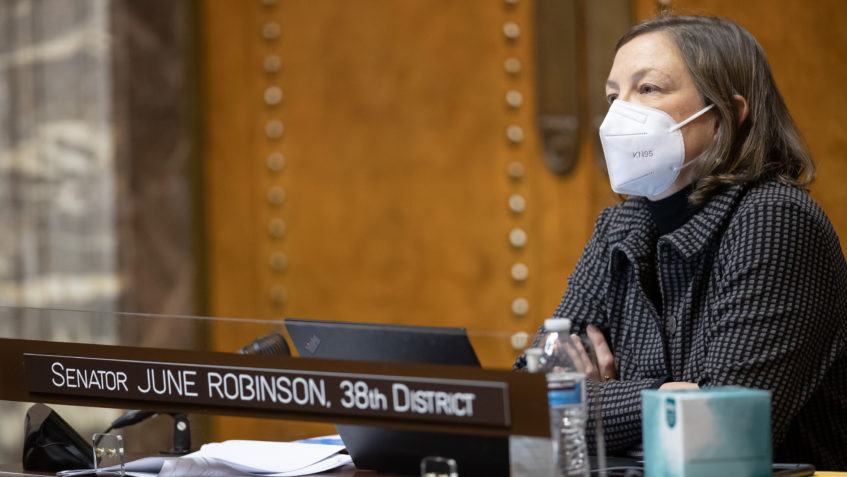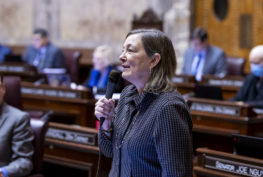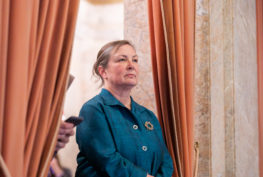FOR IMMEDIATE RELEASE: Feb. 16, 2021
Robinson’s capital gains proposal clears Ways & Means
Legislation to establish a state capital gains tax on the sale of stocks and bonds passed out of the Senate Ways & Means Committee today.
Sen. June Robinson (D-Everett) had previously introduced SB 5096 in a public hearing on Jan. 14, then today added a striking amendment to adjust the threshold and add exemptions.
“Our state has one of the most regressive tax codes in the nation,” said Robinson. “A Washingtonian making low wages pays almost 18% of their income to state and local taxes, while the wealthiest among us pay about 3%. This places a terrible, disproportionate burden on working families and small businesses, and it makes our economy more vulnerable to recession.”
Robinson said she amended the bill to address concerns raised during the public hearing.
“We heard great feedback from community members across the state, in large part thanks to remote testimony making it easier for folks to weigh in,” she said. “By raising the threshold and expanding exemptions, this capital gains proposal would increase the share of state taxes paid by just 2% of the very wealthiest Washingtonians. It’s a reasonable way of asking those wealthy few to join the rest of us in building a stronger, healthier state for all Washingtonians – a state in which they have thrived.”
Prior to the amendment, SB 5096 would have applied a 9% tax to capital gains earnings in excess of $25,000 for individuals and $50,000 for those who file jointly. Some exemptions would have been provided for sole proprietor businesses, retirement accounts, homes, farms and forestry.
As amended, SB 5096 would apply a 7% tax to profits from the sale of stocks and bonds, personal property and the sale of a business but only if those profits are in excess of $250,000 for both individuals and those who file jointly. Exemptions have been broadened to include the sale of a house, a family-owned small business, commercial real estate, retirement accounts, or agricultural and timber land. Any profits from stocks and bonds under $250,000 are also excluded, and the exemption for the sale of a family-owned small business was expanded to exempt the sale of any family-owned small business that grosses less than $6 million per year.
The capital gains tax would not take effect until the second year of the next biennium. It would raise an estimated $550 million per year, which would be dedicated to funding childcare priorities and building a future tax infrastructure that corrects the upside-down nature of our tax code, including through possible tax relief for low- and middle-income families.
“This is a key first step,” Robinson said, “toward a more fair and equitable tax system – one that asks the wealthiest among us to be part of investing in our state’s thriving future; one that fosters, not stifles, a flourishing economy and the health and success of all Washingtonians.”
The bill will now advance to the Rules Committee, where it can be called to the Senate floor for a vote.




